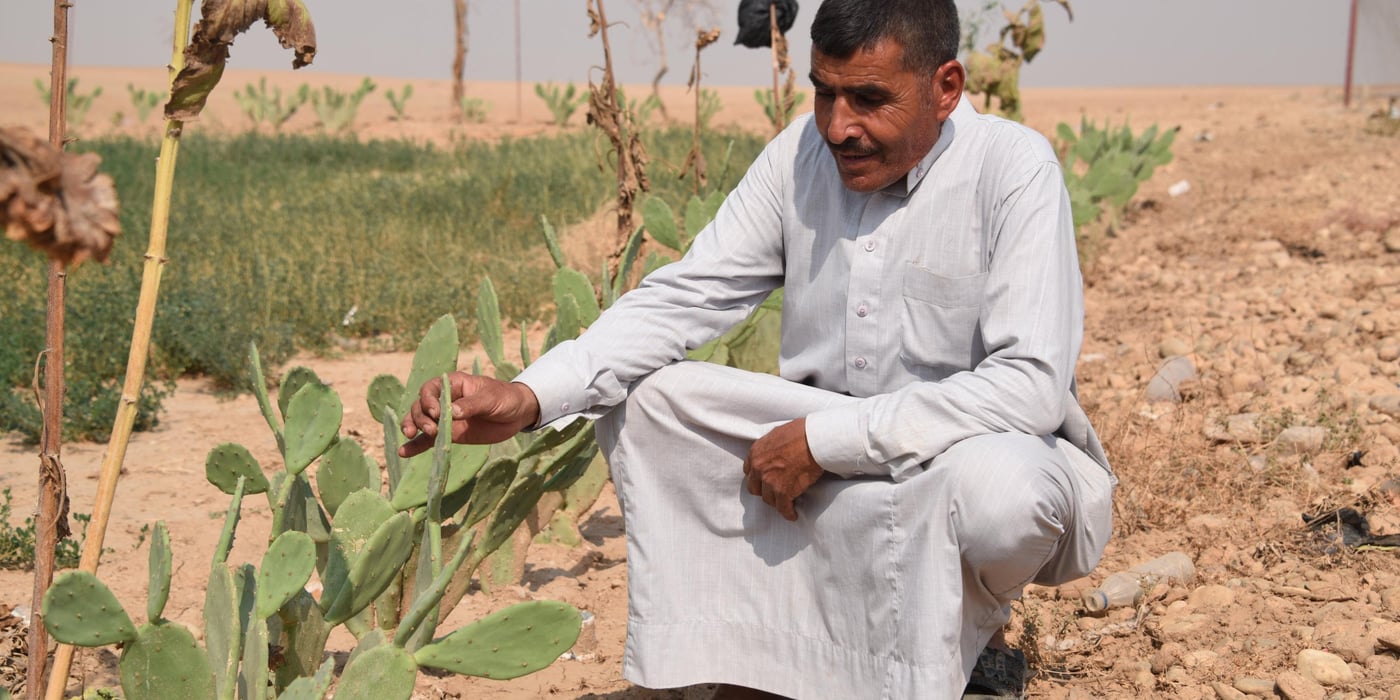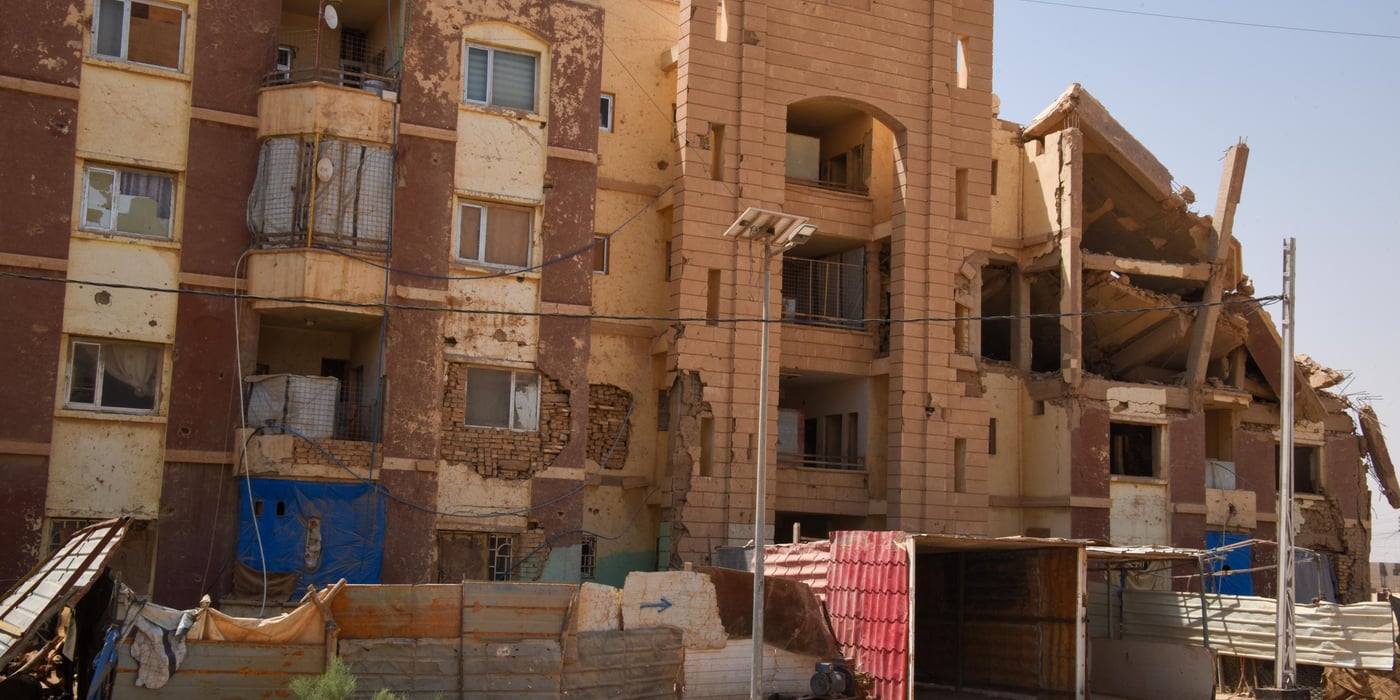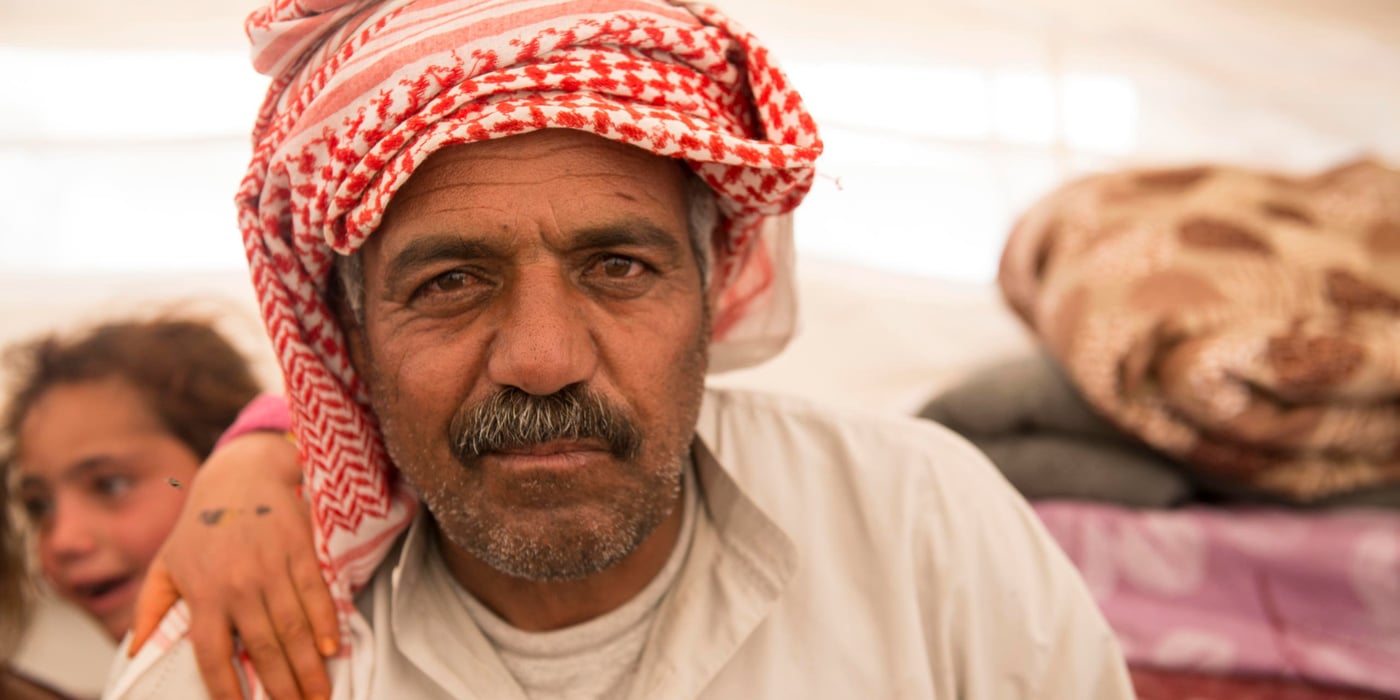
Before Muhammed´s village was taken over by ISIS, he lived a good life with his wife and their six children. They were sheep farmers. They had their own animals, a house, and a car. But last year, they were forced to leave everything behind when ISIS took control of their village.
“We were afraid of the airstrikes because we had no idea when they would hit. All we could do was to stay in our house or in old shops to try to avoid the bombs although the shrapnel could easily penetrate our door,” he says.
Displaced for a second time
After fleeing from their village, Muhammed’s family begins collecting plastic from the streets of Mosul to survive. Although their life has been turned upside down, their situation goes from bad to worse when the conflict in Mosul force them to escape again.
We were afraid of the airstrikes because we had no idea when they would hit. All we could do was to stay in our house or in old shops to try to avoid the bombs although the shrapnel could easily penetrate our door.Muhammed, father and displaced person in Iraq.
Since February, hundreds of thousands of people have fled Mosul to a transit site around 50 kilometres away from the city. Here, the Norwegian Refugee Council (NRC) provides newly displaced families with enough food and water to last them a few days.
While staying in basic conditions on the transit site, Muhammed and his family are allocated plots in a camp a short distance away. They pack the little they have with them and board a bus that take them to their new home.
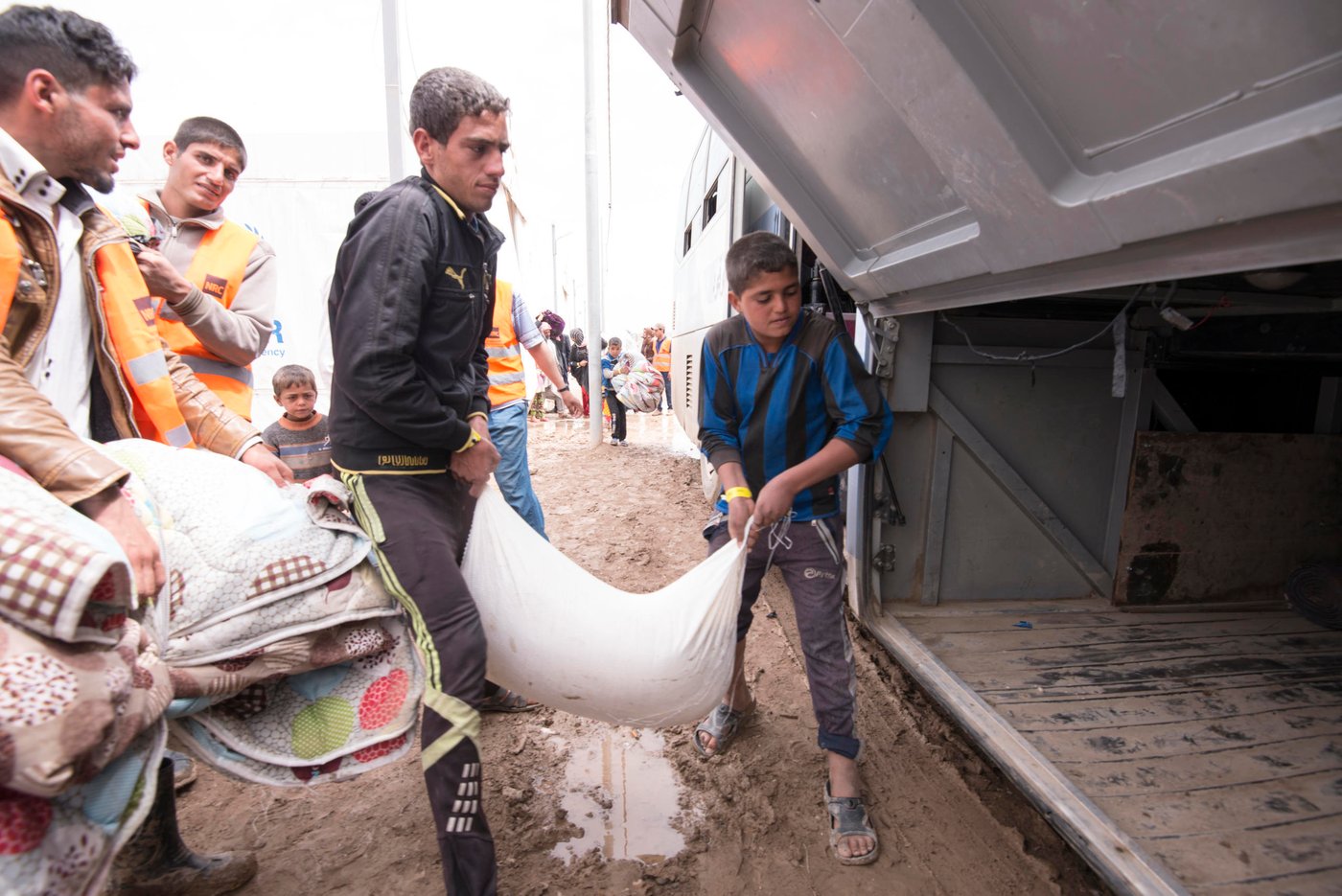
“In Mosul our life was really miserable, we were starving, there was not enough food, and no water or basic services. We lived on bread, unripe dates, tea and tomato ketchup. We depended on the rain as our drinking water most of the time,” Muhammed says.
A sense of safety
As they stand patiently waiting to move into their new home, they are relieved to be out of the ever-present danger in Mosul. “We were afraid to do anything. ISIS were even taking shares from our earnings,” Muhammed says.
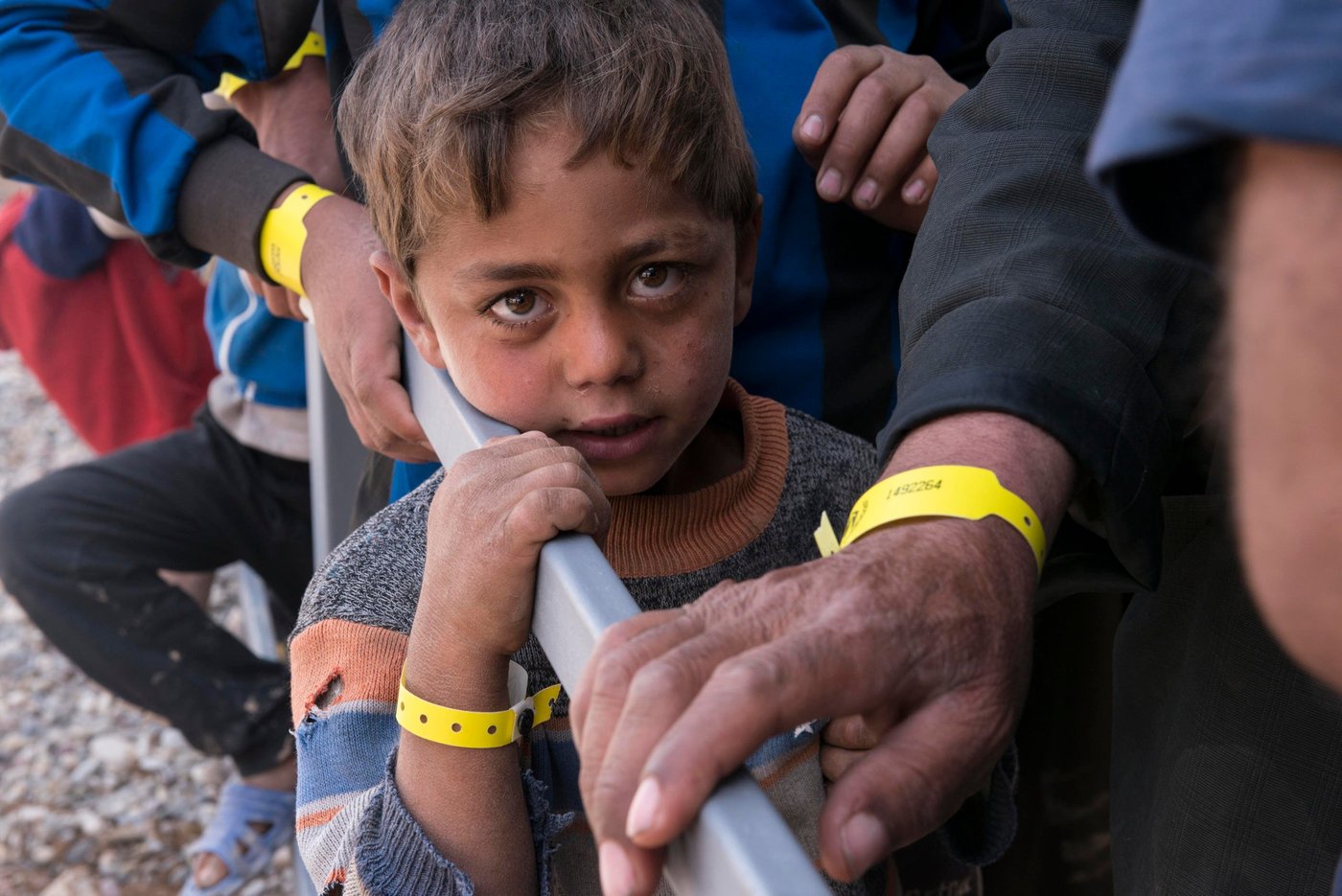
Yet, they know little of what life in the camp will be like. Hasham, Muhammed’s six year-old son watches intently as NRC staff collects the family’s details and enter them into a database that will ensure they receive aid over the coming weeks and months – as long as they live in the camp and as long as aid agencies like NRC have the resources to provide for them.

They collect mattresses, blankets, kitchen implements, water and food – basic supplies for their life in the camp. Their new home is in a camp where over 20,000 other Iraqis who have fled Mosul also live. So far, almost half a million people are displaced from the city.
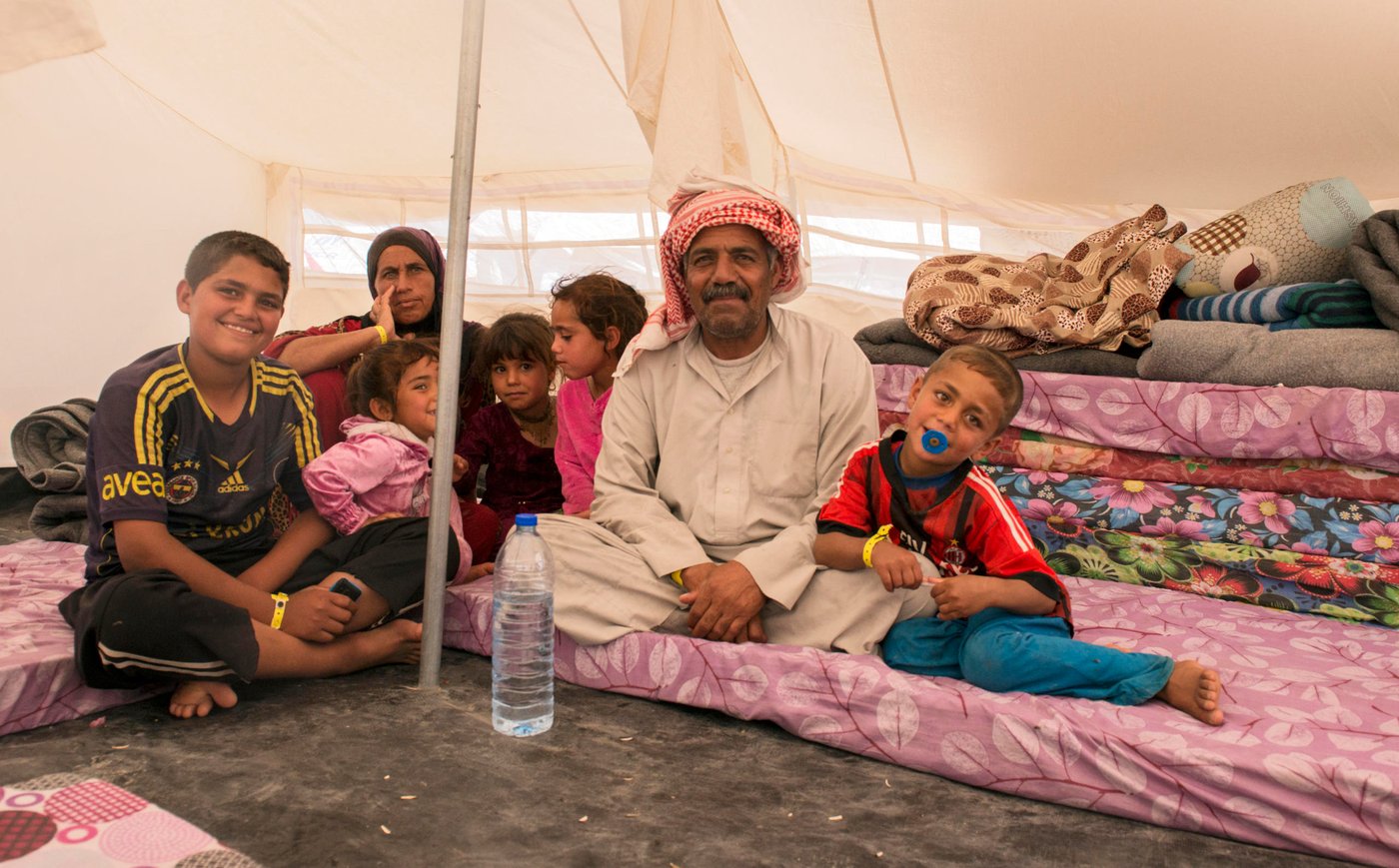
“The situation is bad, the food we receive is not very good, and in general the available aid is not enough,” Muhammed tells us from inside his new home.
“We no longer have a future, we have lost everything, our only hope is to get back to our house and start all over again.”
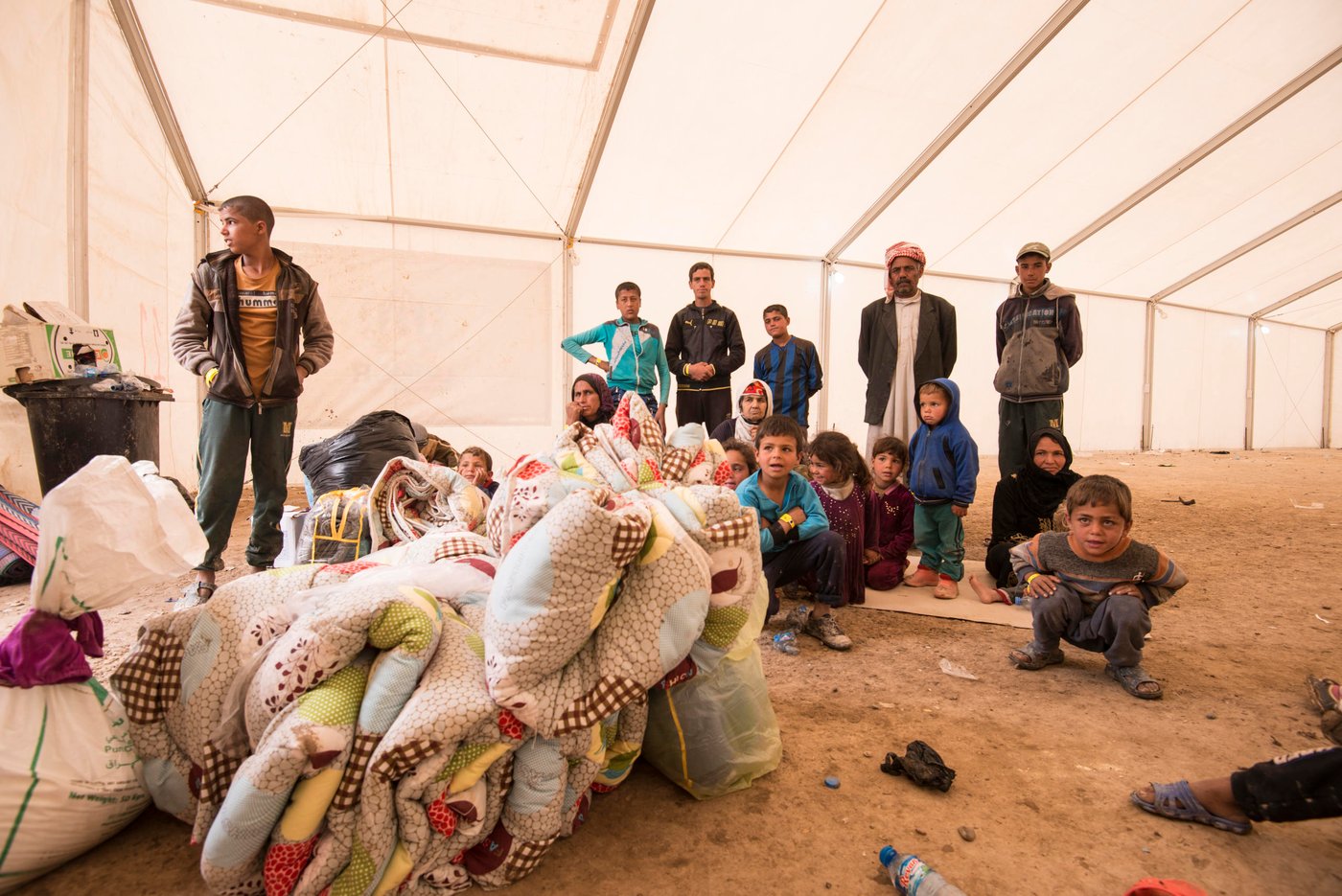
NRC manages the camp where Muhammed lives. Much of the work lies in coordinating the different services of the numerous organisations that work in displacement camps to ensure that there are no gaps and no duplication of services.
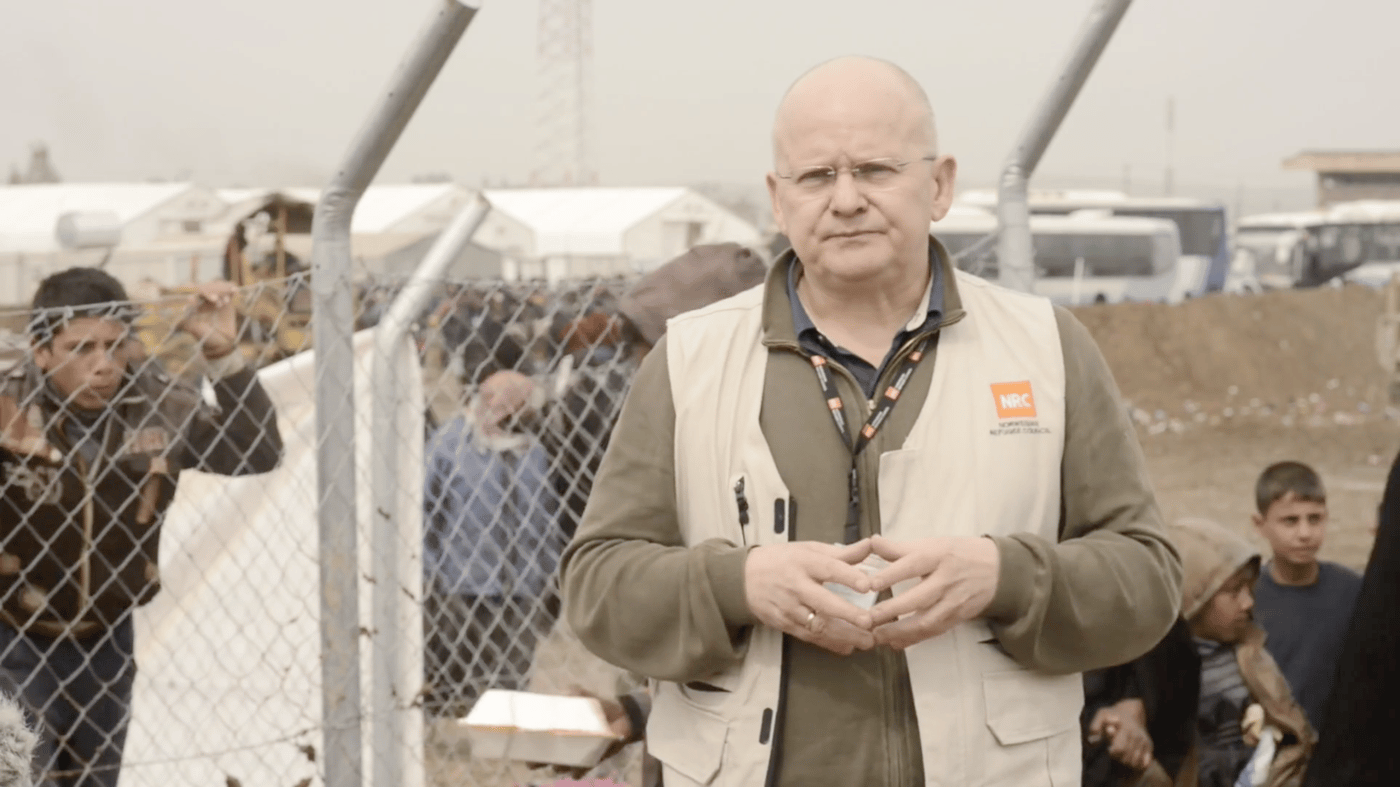
Camp management is a difficult but essential task. There are around 30 camps for displaced people in Iraq alone.



